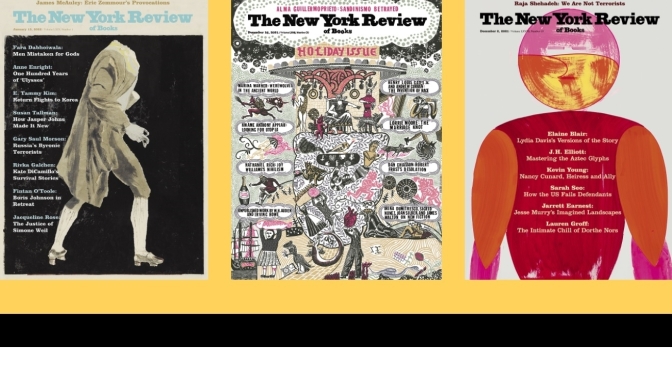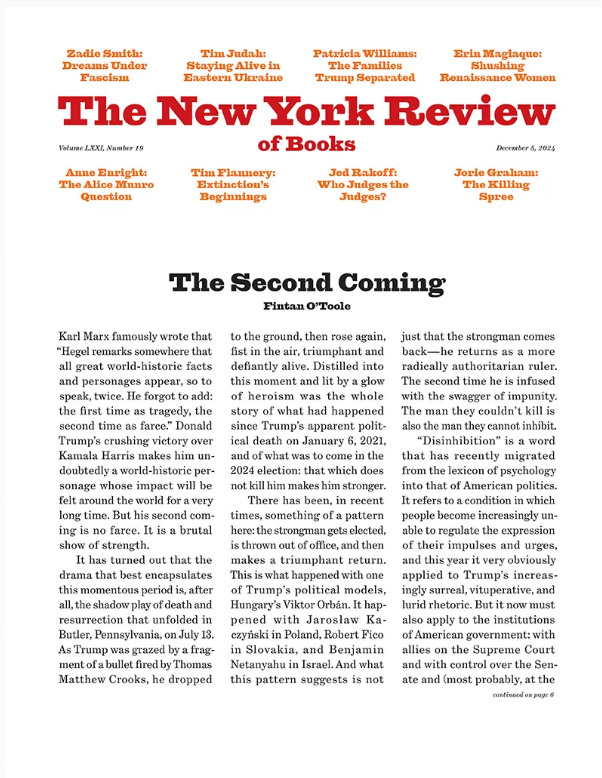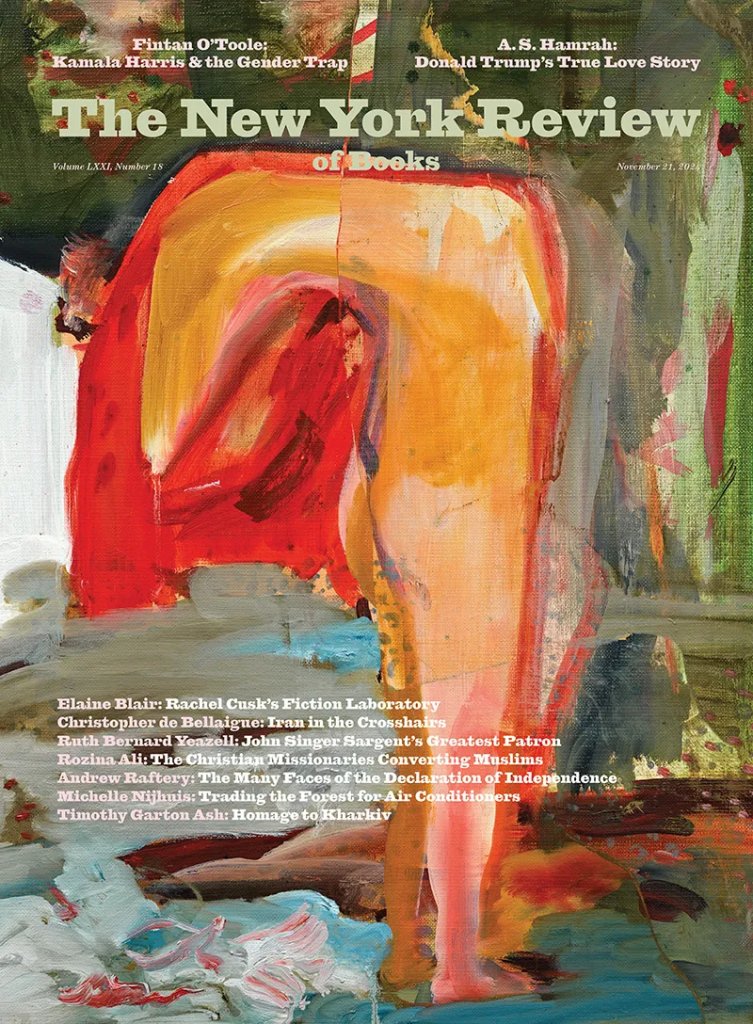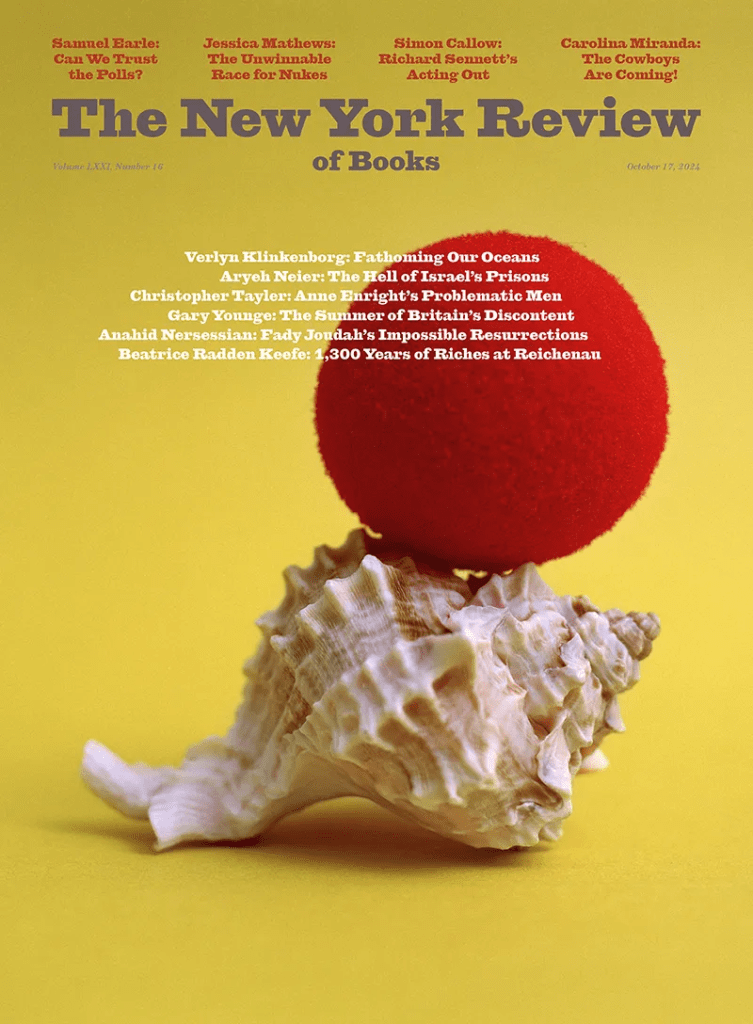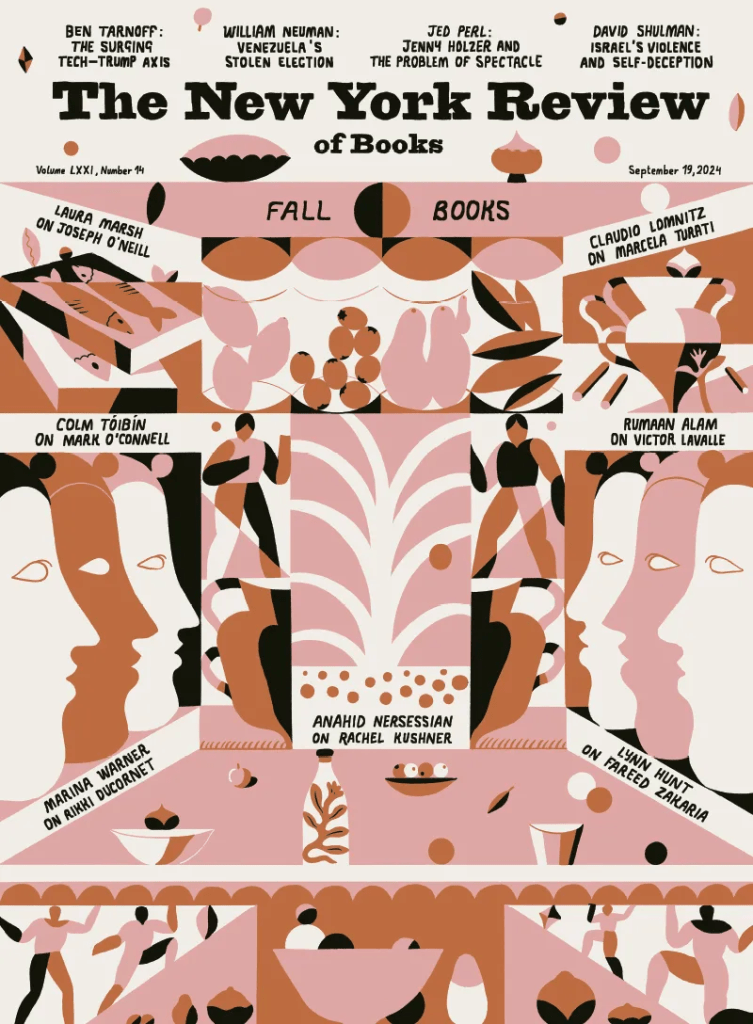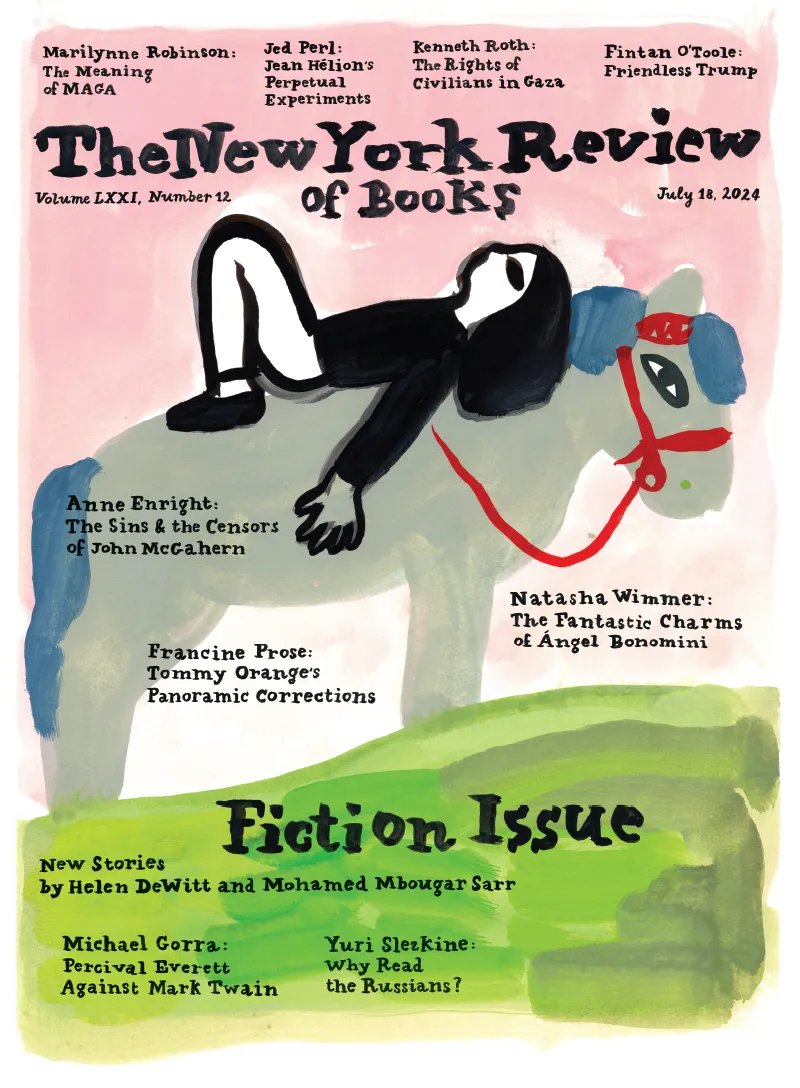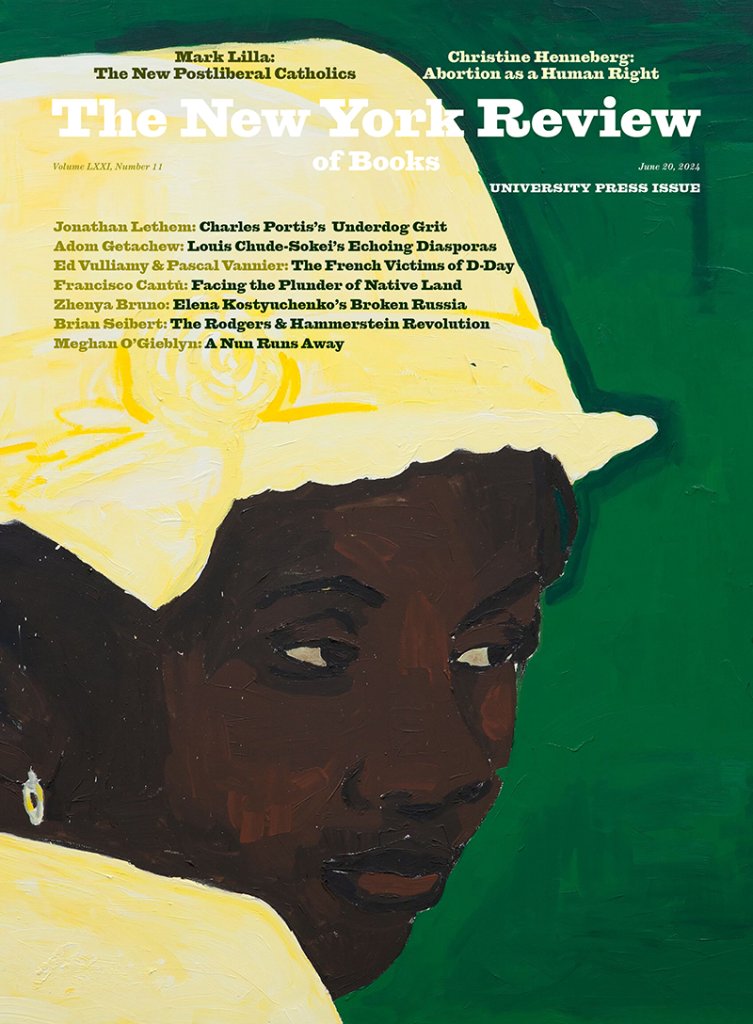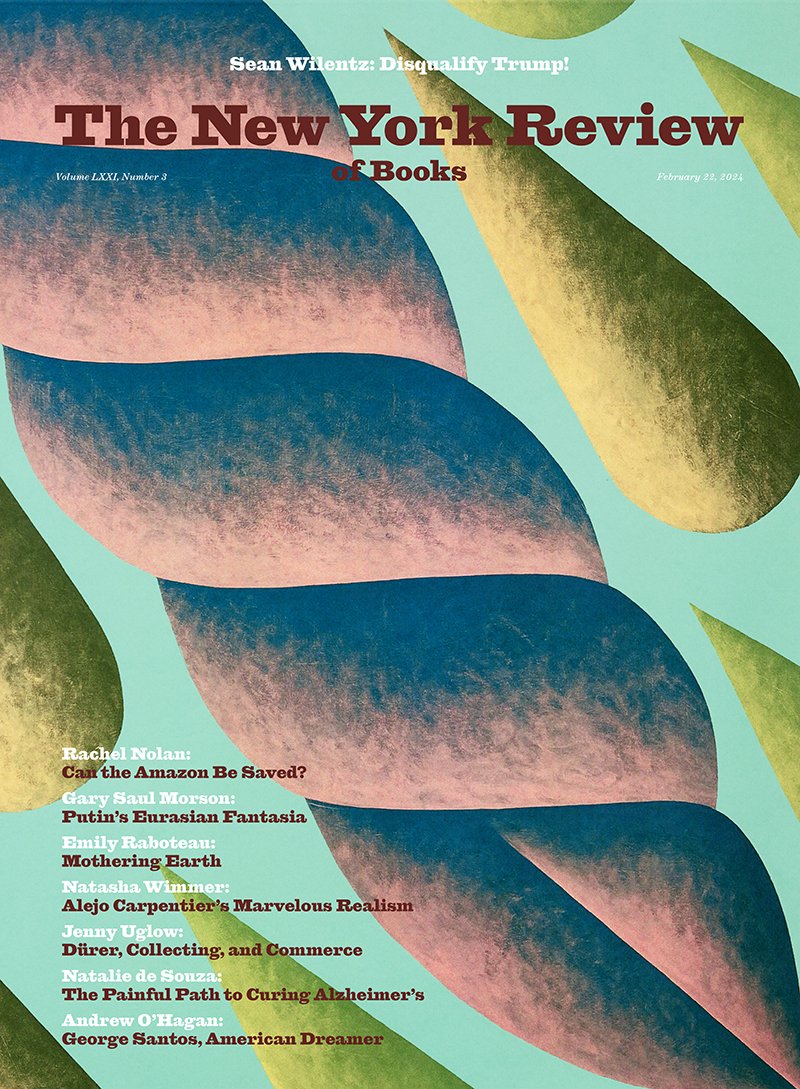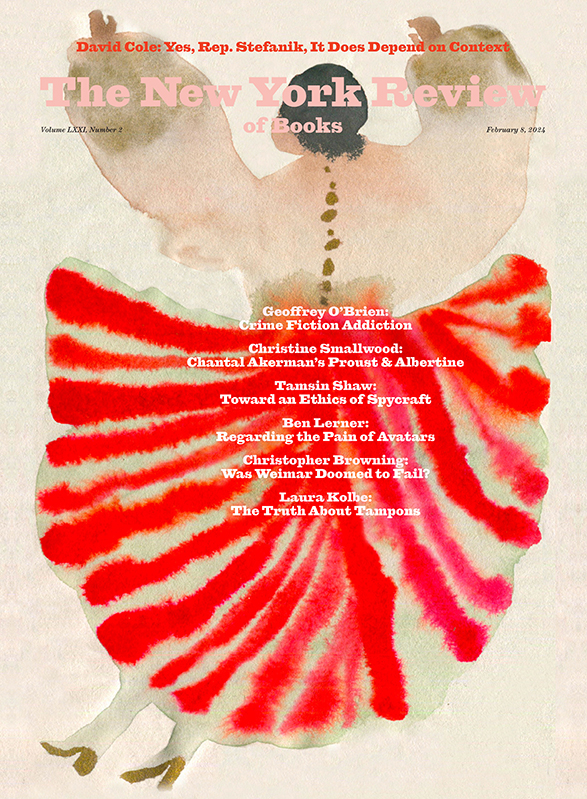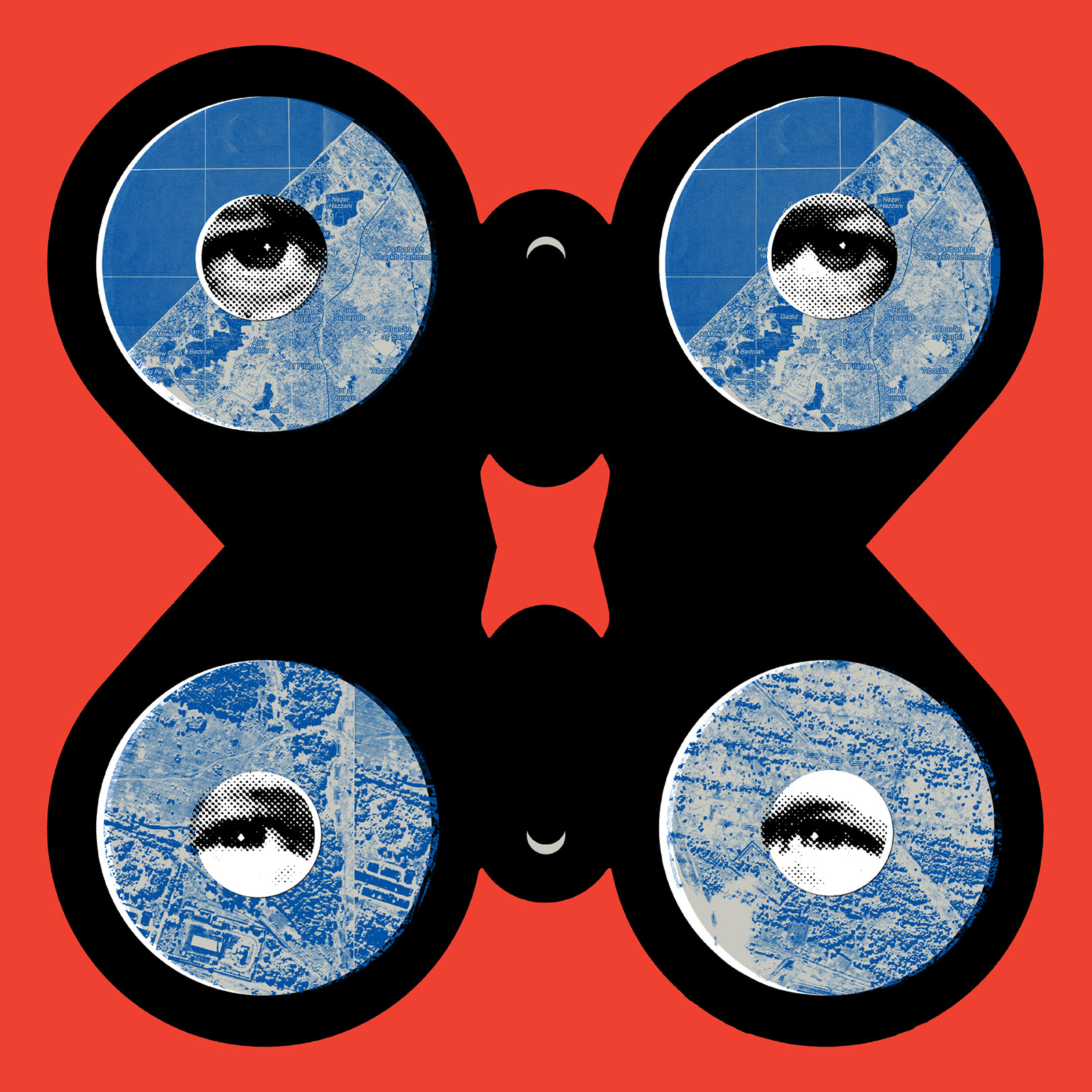
The New York Review of Books (November 28, 2024) – The latest issue features ‘The Evils of Factory Farming’…
Israel’s Revenge: An Interview with Rashid Khalidi
The scholar of Palestinian history talks about what has and has not surprised him about the world‘s response to Israel‘s assault on Gaza.
Under the Spanish Volcano
A recent exhibition at the Prado showcased artists engaging with the ferment and conflict of turn-of-the-century Spain.
‘The Look of Shame’
The French director Catherine Breillat has spent her career insisting on women’s agency and reclaiming taboo desires—sometimes with troubling implications.

